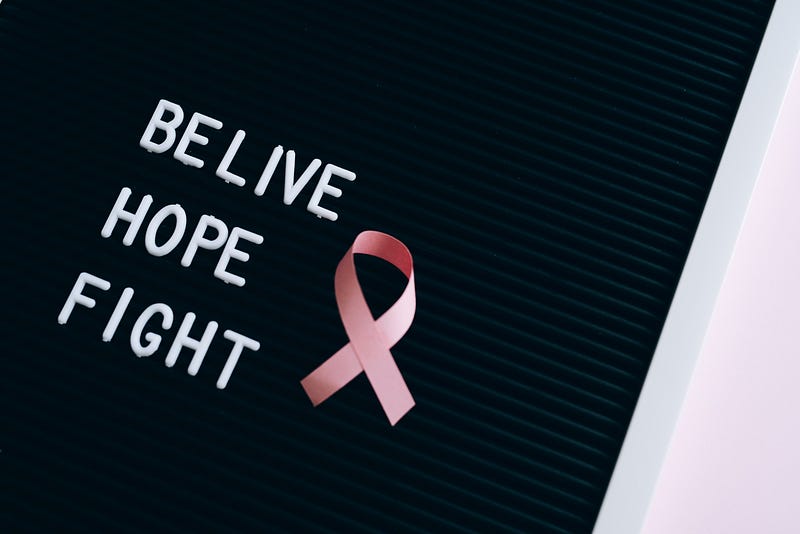Immunotherapy: A Revolutionary Approach to Cancer Treatment
Written on
Introduction to Immunotherapy
Immunotherapy represents a significant breakthrough in cancer treatment for numerous reasons.

Purpose and Motivation
As someone with a technology and science background, I am particularly fascinated by immunotherapy technologies and clinical trials. Cancer is a pressing issue that affects many, including my friends and colleagues.
Research and writing on cancer are vital to me because, as reported by the World Health Organization (WHO), “cancer was responsible for nearly 10 million deaths in 2020.” On a positive note, WHO states that “many cancers can be cured if detected early and treated appropriately.”
This article aims to introduce immunotherapy as a promising treatment option for various cancers, emphasize the significance of clinical trials, and raise awareness about the latest immunotherapy technologies.
Previously, I have discussed preventive measures against cancer. Encouragement from readers has motivated me to share insights on immunotherapy as a treatment approach. Please note that this post is not intended as medical advice; it is meant for informational and inspirational purposes, drawing on reliable sources.
Understanding Cancer
According to the National Cancer Institute (NCI), “cancer occurs when certain cells in the body grow uncontrollably and spread to other regions.” There are over 100 distinct types of cancer.
Our cells continuously undergo division and change. Damaged cells die, giving way to new ones—a normal process essential for maintaining balance in the body.
Yet, as noted by the NCI, “this ordered process can malfunction, leading to abnormal cells that proliferate when they shouldn’t. These cells can form tumors, which may be either cancerous or benign.”
NCI further explains that “malignant tumors invade surrounding tissues and can metastasize, creating new tumors in other body areas.”
While cancer is fundamentally a genetic disease, lifestyle choices and epigenetic factors can also influence its development.
What is Immunotherapy?
Immunotherapy has a rich history, dating back to 1891 when Dr. William B. Coley first utilized it to treat a patient with inoperable cancer.
Since that time, research in immunotherapy has flourished. The National Library of Medicine (PubMed) has indexed over 395,000 studies related to immunotherapy since 1944.
Our immune system has the innate ability to combat cancer cells, either by destroying them or inhibiting their growth. However, certain cancer cells can evade detection due to genetic mutations, protective proteins, or their interactions with normal cells.
Immunotherapy seeks to enhance the immune system’s ability to recognize and eliminate these cancer cells. Scientists consider this approach a revolutionary shift in healthcare.
According to the NCI, five primary forms of immunotherapy exist: “immune checkpoint inhibitors, T-cell transfer therapy, monoclonal antibodies, treatment vaccines, and immune system modulators.”
As of December 2019, the FDA has approved immunotherapies for nearly 20 types of cancer and specific genetic mutations associated with certain cancers.
Research published in Nature highlights that “immunotherapy has emerged as a formidable clinical strategy for cancer treatment, with an increasing number of drug approvals and ongoing developments.”
However, the paper also identifies a critical challenge: effectively controlling the immune system's response, as immunotherapy can lead to severe side effects, including autoimmunity and non-specific inflammation.
To address this, advancements in biomaterials and drug delivery systems, such as nanoparticles and T-cell therapies, may improve immunotherapy’s effectiveness while minimizing adverse effects.
I will refrain from delving into complex technical details here, but readers interested in learning more can refer to comprehensive research published on PubMed, which discusses advancements, opportunities, and challenges in integrating delivery technologies into cancer immunotherapy.
Comparing Chemotherapy and Immunotherapy
Chemotherapy has been a staple cancer treatment since the 1960s. The primary distinction between chemotherapy and immunotherapy lies in their approaches to eradicating cancer cells.
Chemotherapy directly attacks cancer cells but can also harm normal cells. In contrast, immunotherapy strengthens the immune system, teaching it to specifically identify cancerous cells.
Additionally, chemotherapy typically acts faster than immunotherapy, but the effects of immunotherapy tend to last longer.
Immunotherapy is also applicable for HIV patients whose immune systems are functioning normally. The NCI notes that “HIV patients can receive immunotherapy as standard treatment or as part of a clinical trial.”
Significance of Immunotherapy Clinical Trials
The NCI highlights that “clinical trials can provide valuable treatment options for patients.” Immunotherapy is among these options, with many promising treatments available exclusively through clinical trials.
Unfortunately, many patients remain unaware of the latest advancements in immunotherapy research and the growing opportunities to participate in clinical trials. This article aims to shed light on their significance.
While medical professionals can inform patients about clinical trials, expressing interest in these trials can serve as a proactive health measure. It is crucial to discuss clinical trial possibilities with healthcare providers.
For those interested, an interactive web portal can help assess eligibility for clinical trials based on specific cancers.
Conclusions and Insights

In previous articles, I have focused on cancer prevention. I believe that many cancers may be preventable through healthy lifestyle choices and support from qualified healthcare professionals.
Immunotherapy stands out as a promising and effective treatment method. Its most significant advantage lies in its ability to educate and empower the immune system against cancer cell proliferation.
Cancer is staged from 0 to 4, where stage zero indicates no tumor evidence, and stage four indicates a larger, denser tumor. Therefore, timely cancer screenings are essential, as early detection can greatly enhance recovery chances.
Understanding immunotherapy's value is crucial for everyone. I encourage discussions about this effective therapy and ongoing clinical trials with family doctors and oncologists involved in cancer care.
Research in the BMJ Journal for ImmunoTherapy for Cancer notes that “cancer immunotherapy trials signify a paradigm shift in drug development.”
As an optimist, I maintain faith in the body's healing abilities.
Additional Resources
Here’s why I believe that cancer might be preventable. It’s a complex condition, but lifestyle changes offer promising pathways to reduce risks.
If you found this article insightful, consider exploring valuable work by Mike Broadly, DHSc, on the effects of ketogenic diets and fasting on cancer prevention and treatment.
The first video, "Immunotherapy Clinical Trials: Sue Scott's Story of Survival," shares a personal journey through immunotherapy and its impact on cancer treatment.
The second video, "What is Immunotherapy and How Does it Work?" provides an overview of immunotherapy and its mechanisms in combating cancer.
Thank you for engaging with my perspectives. I wish you health and happiness on your journey.